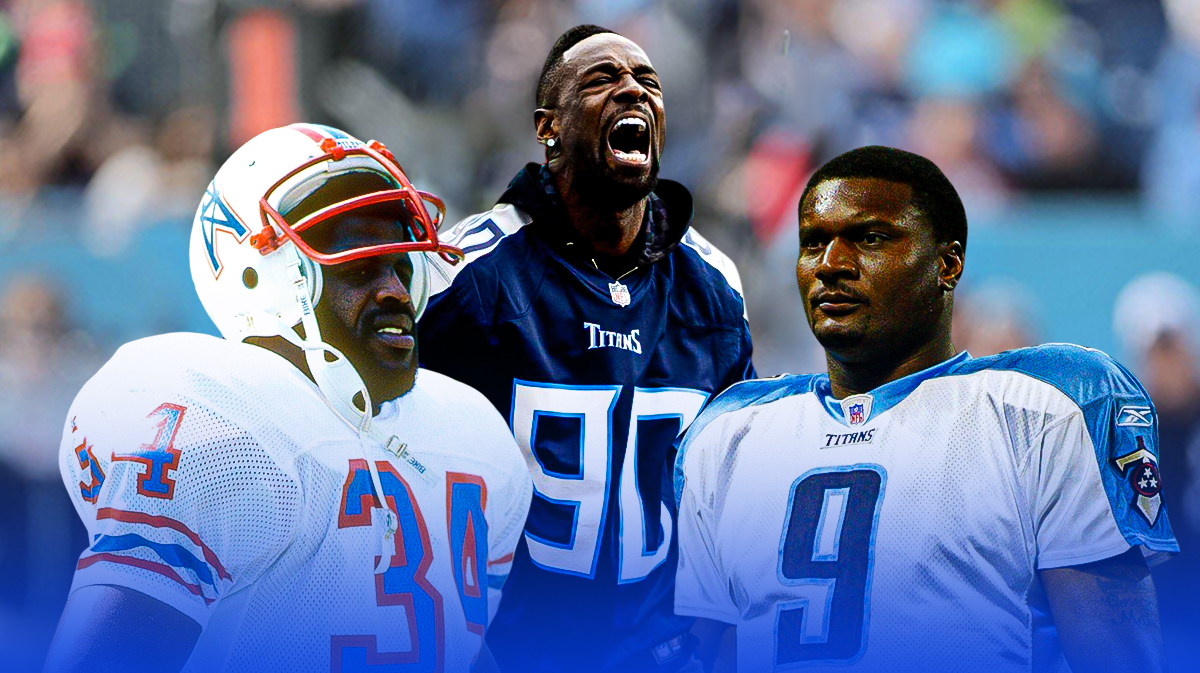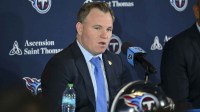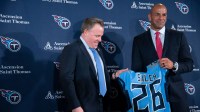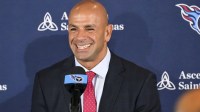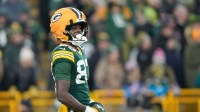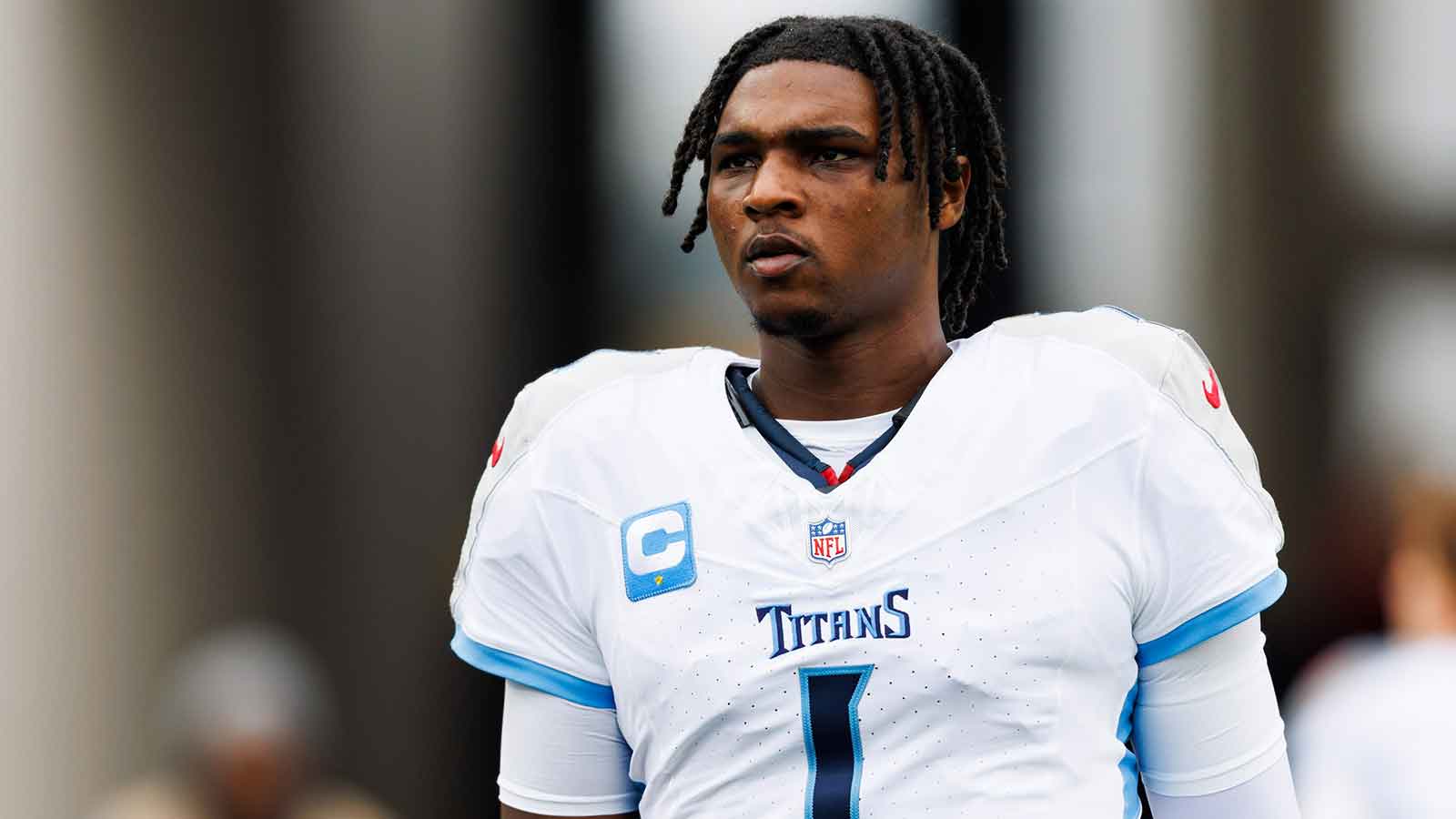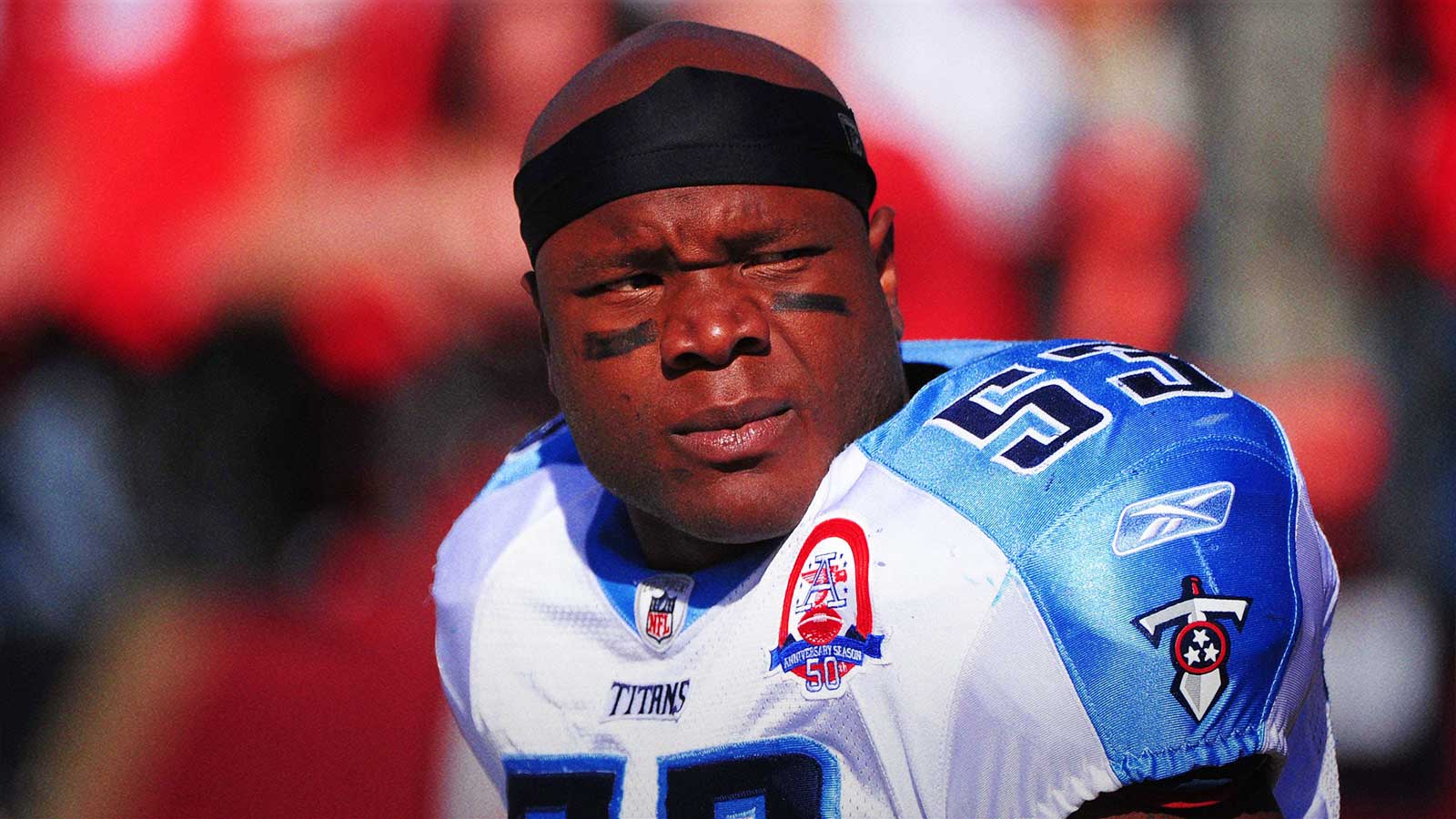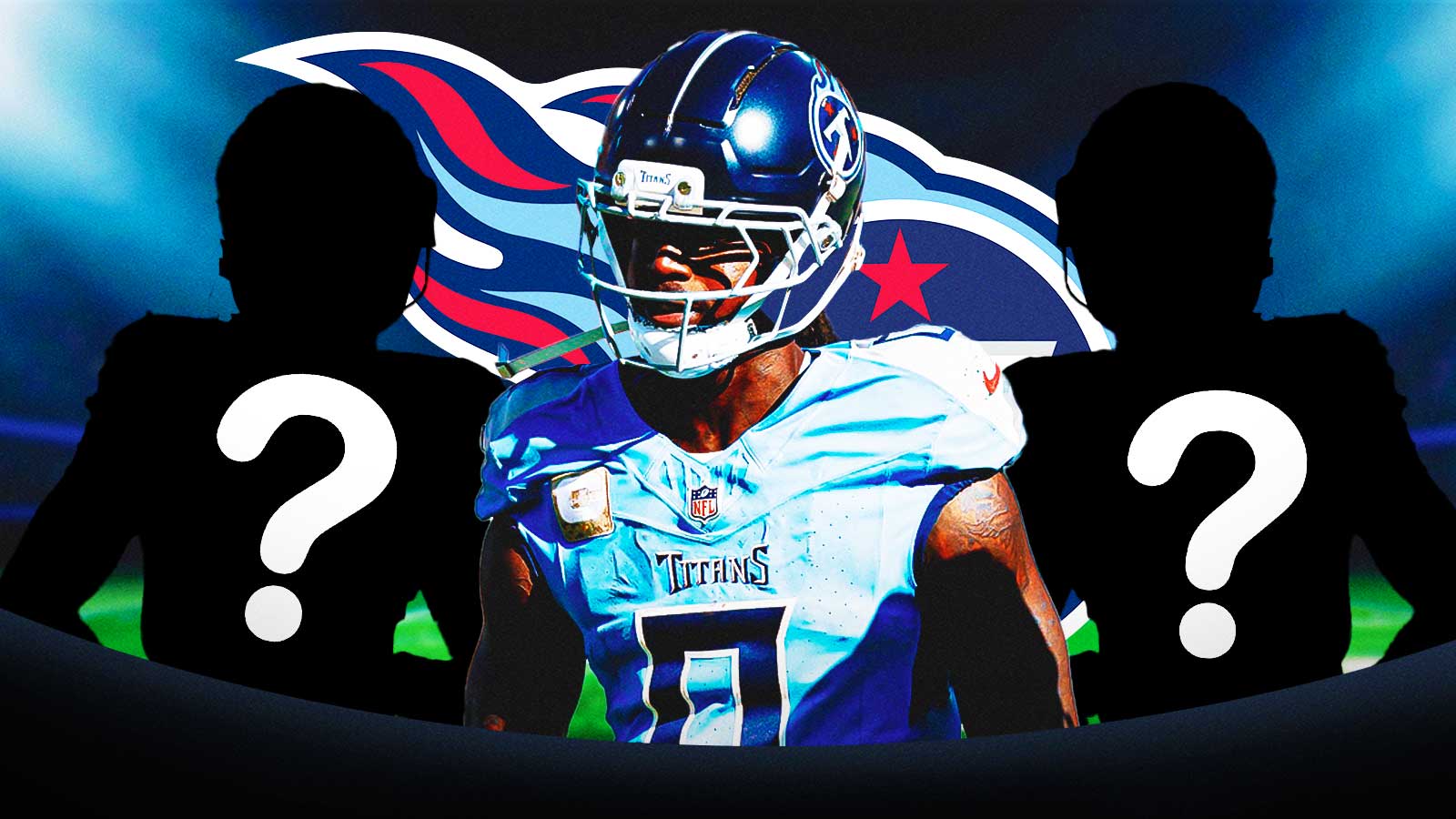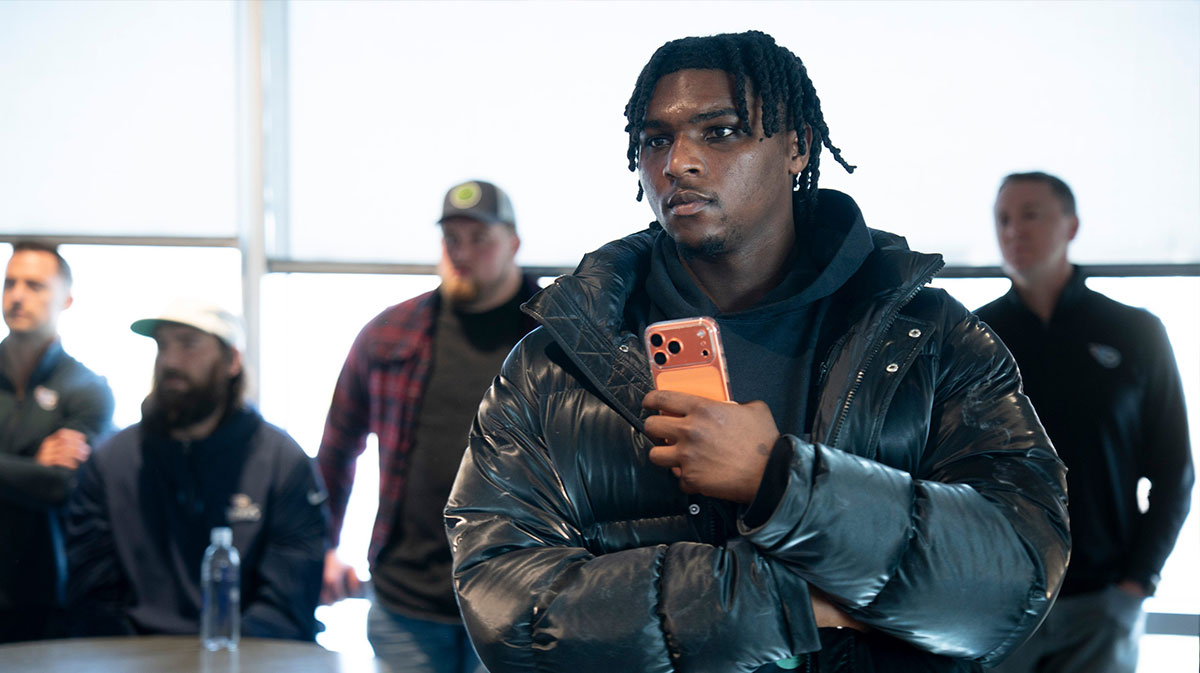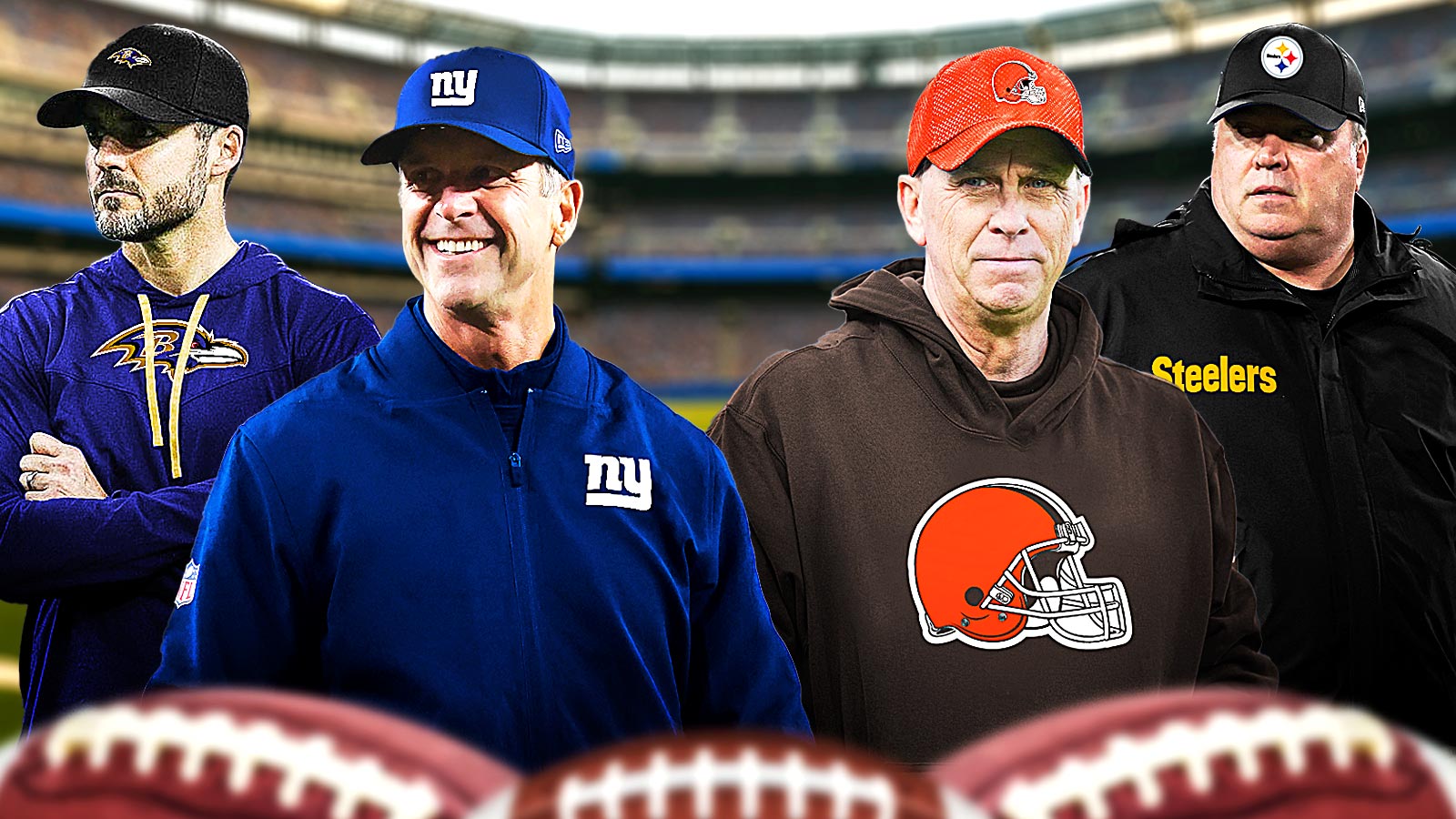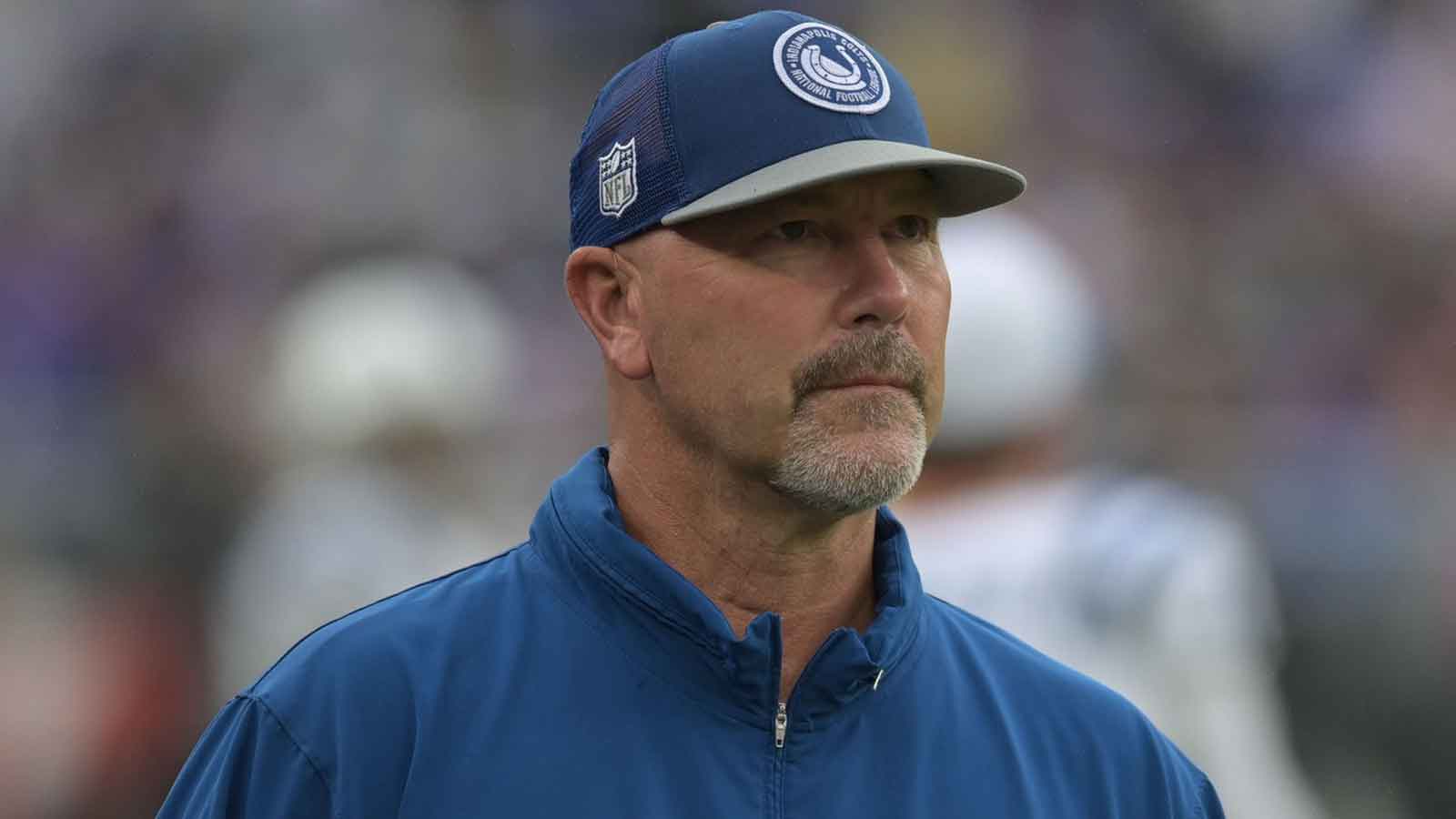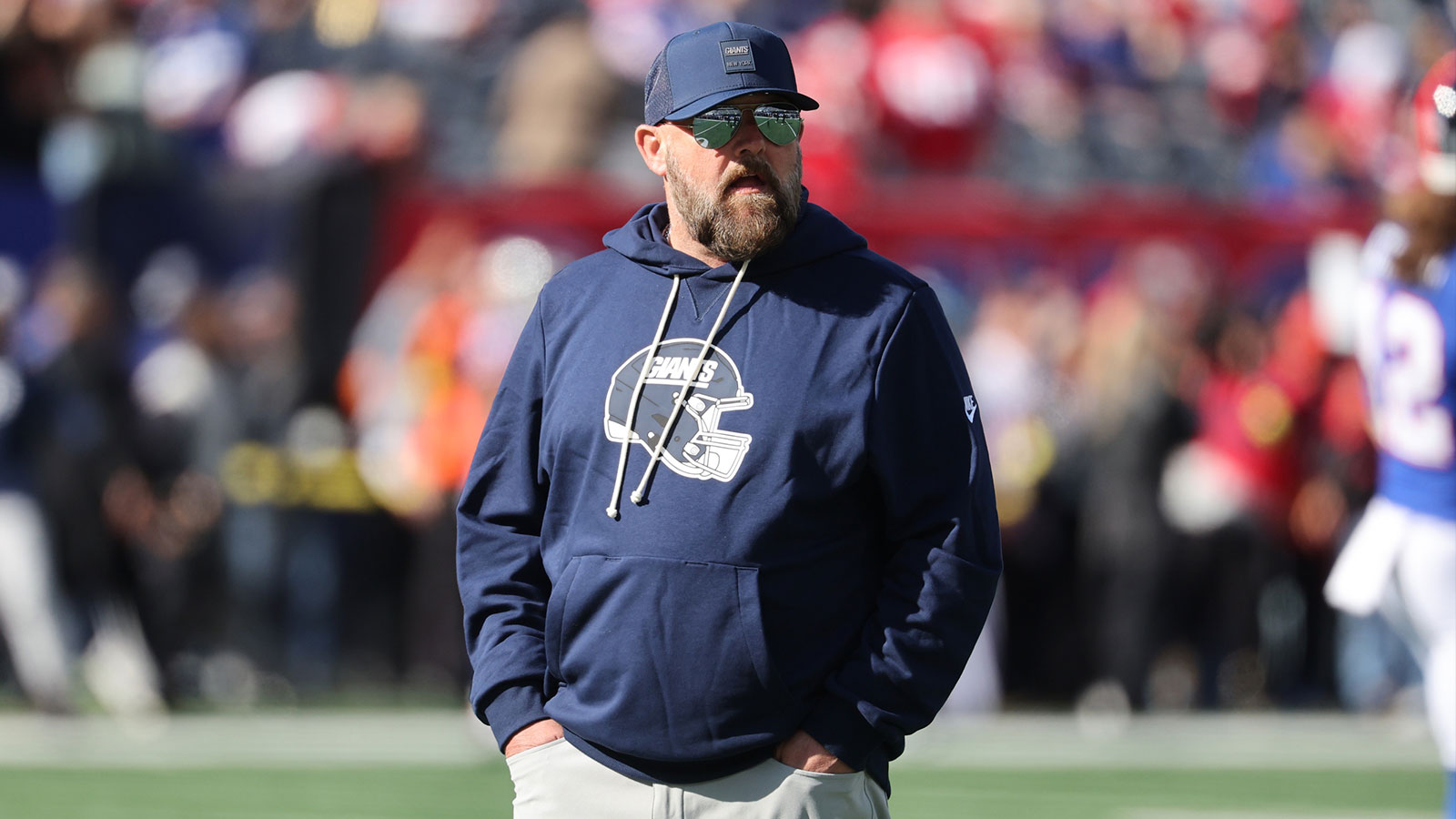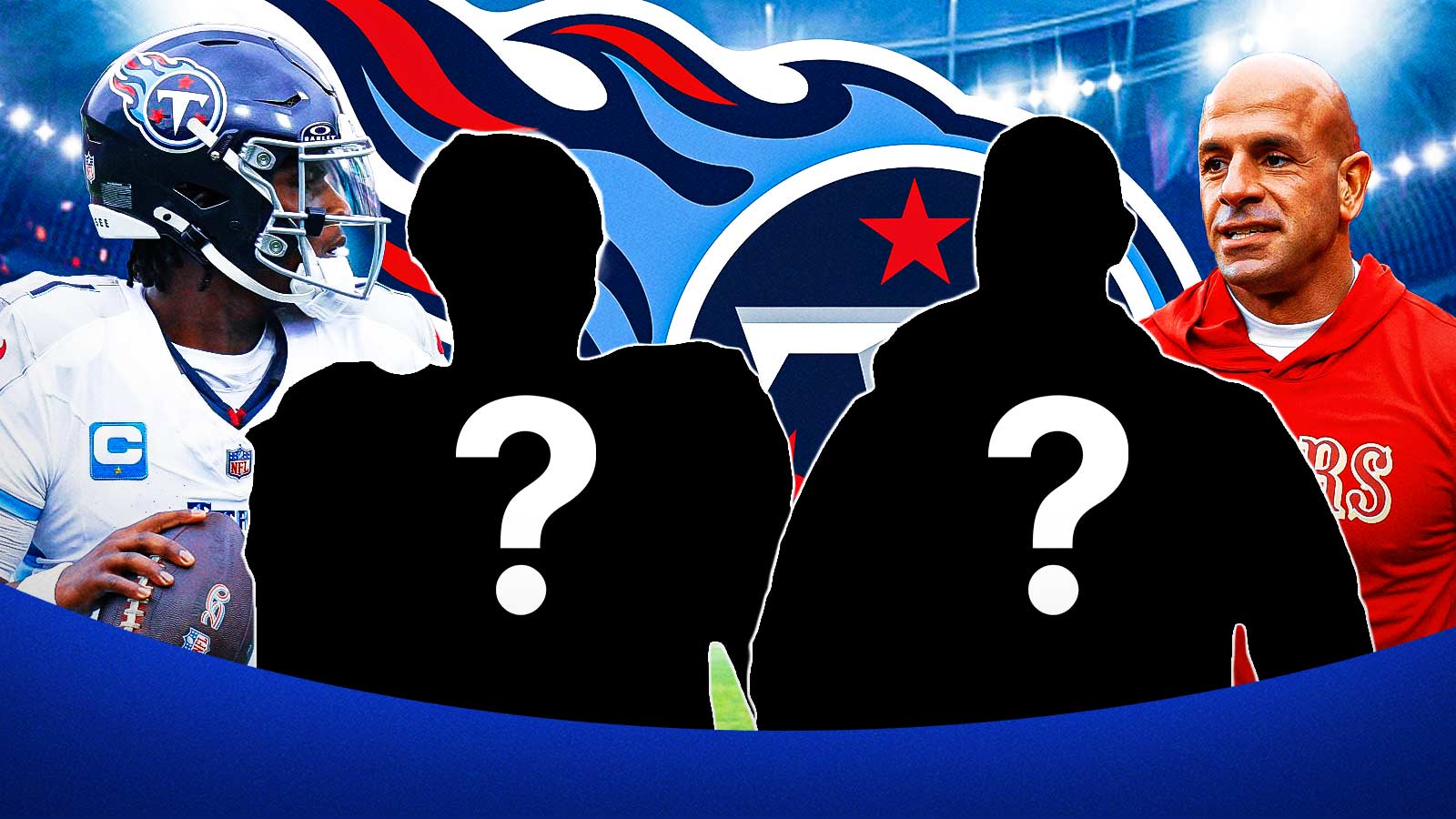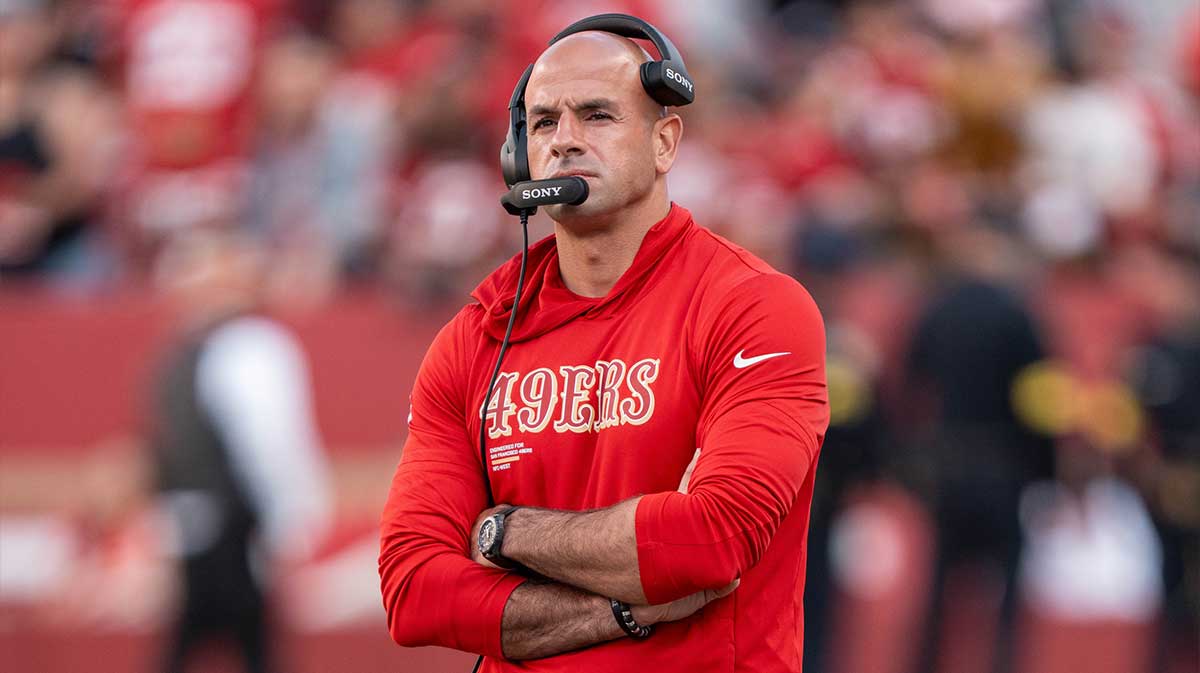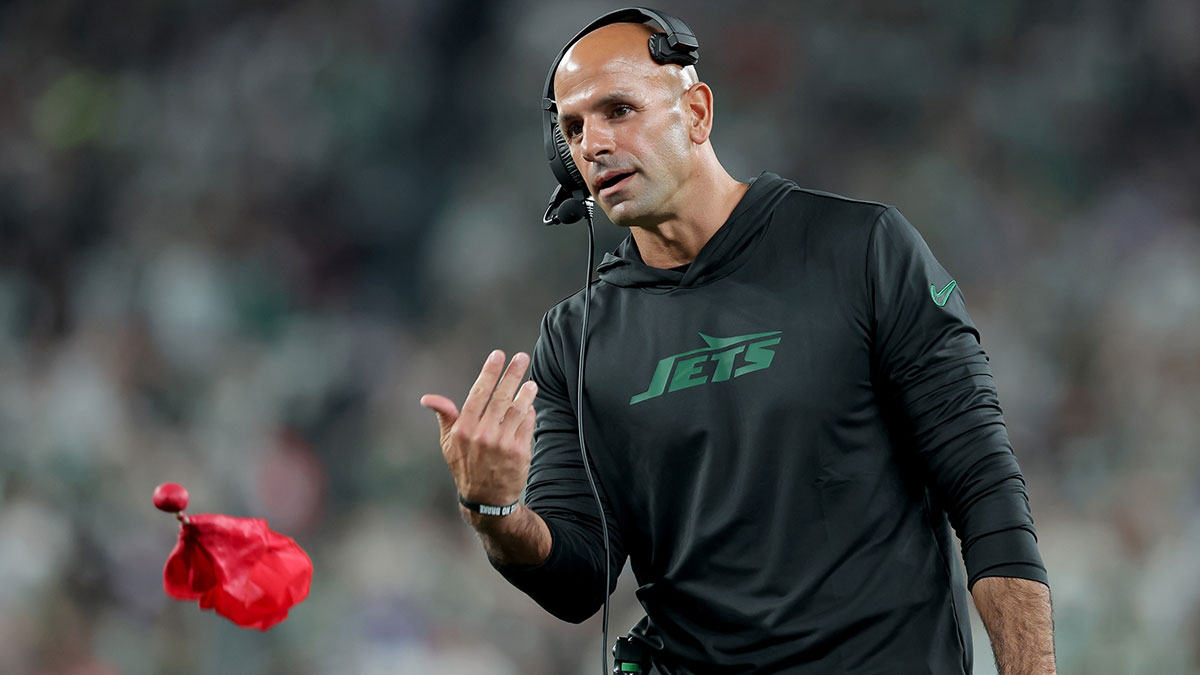It’s a little tricky to rank the 10 greatest Tennessee Titans of all time. Does that mean the ones who played in Tennessee, or does it include the Houston Oilers’ days? For this exercise — gotta keep stretching those NFL muscles in the summer time! — we’ll include the guys from Houston, too.
Houston won the first two AFL championships (1960-61) and later made NFL playoff appearances in 1978-80 and 1987-93. The franchise relocated to Tennessee in 1997 and played as the Tennessee Oilers for two years. In 1999, they became the Tennessee Titans. They reached the Super Bowl that season but lost 23-16 to the St. Louis Rams.
The franchise has fallen on hard times as of late, having missed the playoffs the previous seasons and finishing in last place in the most recent two seasons. However, as the Titans prepare to make the first overall pick in the 2025 NFL Draft (unless they trade it away), here is a look at the ranking of the 10 greatest Titans player of all time.
10. WR Derrick Mason
Drafted in the fourth round in 1997, Derrick Mason began to emerge as a star in 2000. In that season, he had 895 yards receiving, but also returned punts and kickoffs. He finished with 2,690 all-purpose yards, which was an NFL record at the time and is still the second-best total in NFL history.
Mason had four straight 1,000-yard receiving seasons from 2001-04. In those years he posted touchdown totals of 9, 5, 8, and 7.
And in his last two years in Tennessee (2003-04), he caught 95 and 96 passes, respectively. He earned one All-Pro honor and two Pro Bowl selections.
9. DE Jevon Kearse
At 6-4 and 265 pounds with speed, Jevon Kearse presented nightmares for offensive coordinators.
He started early, earning AP defensive rookie of the year honors in 1999. He finished second in the defensive player of the year voting. In his first three years with the Titans he had double-digit sacks.
Nicknamed “The Freak,” Kearse impressed even his star teammates. Albert Haynesworth told si.com what he saw of Kearse on the field.
“I mean, he was like a gazelle hunting down a sloth in a quarterback,” Haynesworth said in one breath. “It was just some of the most amazing things to see how fast he beat offensive tackles. You can’t put a 350-pound offensive tackle trying to race against a cheetah. It doesn’t work.”
8. LB Keith Bulluck
A first-round pick in 2000, Keith Bulluck had a beastly career with the Titans. His highlights included back-to-back All-Pro seasons in 2002-03. He followed those up with a 152-tackle campaign in 2004.
Bulluck also grabbed 21 career interceptions, proving his worth as an all-around player. He had a keen sense to track the football and earned tags like “relentless” and “spirited leader.”
Titans linebacker coach Dave McGinnis total nytimes.com that Bulluck had that little extra.
“Players who have that type of longevity with this type of success, it doesn't come by accident,” McGinnis said. “To be able to do it that long, at that level, at that position, it takes something deep inside. Ability means one thing in this league. Availability means everything.”
Bulluck started all 16 games for the Titans for an incredible seven straight years from 2002-2008.
7. RB Chris Johnson
Man, oh, man, could this dude fly. The 24th overall selection in the 2008 NFL Draft, Chris Johnson began paying dividends in year one. He rushed for 1,228 yards, scored nine touchdowns, and was runner-up for AP offensive rookie of the year while also finishing seventh in the MVP voting.
Year two brought even more fun times as Johnson cracked the 2,000 barrier by six yards — one of eight players in NFL history to reach the vaunted mark. He scored 14 touchdowns, caught 50 passes for another 503 yards and added two air scores. Of course he earned AP offensive player of the year honors.
For the next four seasons, he rushed for more than 1,000 yards and added 32 total touchdowns to his career numbers. Johnson told TMZ Sports, he could have beaten any NFL player in history in a foot race.
“You look at my tape, I've never been caught,” he said. “I made people pull hamstrings!”
6. RB Eddie George
When the franchise left Houston, it brought a young running back who looked pretty good as a rookie. In fact, Eddie George earned AP Offensive Rookie of the Year honors.
In seven of his eight seasons with the franchise, George rushed for over 1,000 yards — and missed by just 61 the other year. He had seasons of 14 and 12 touchdowns and twice earned All-Pro honors. In 2000, he finished third in the AP MVP voting and second for offensive player of the year.
And talk about durability. The 6-3, 235-pound George started every game of his Tennessee career.
Hall of Famer LaDainian Tomlinson told tennesseetitans.com that George “was one of the best running backs of his generation. That stretch that he had was pretty phenomenal. Not many people can say they had a stretch like that.”
5. QB Steve McNair
Coming into the league out of a small college (Alcorn State), Steve “Air” McNair still had plenty of hype. He didn’t take over behind center until his third season, but took off running at that point. In 1999, he helped the Titans reach the Super Bowl, where he threw for 214 yards and set a Super Bowl record at the time with 64 yards rushing.
The whole package came together in 2002-03. McNair threw for more than 3,000 yards both seasons with 46 combined touchdown passes. He was third in the AP MVP voting in 2002 and won the award in 2003.
Teammate Eddie George told titanswire.com it was awesome to watch McNair develop into a star.
“I watched him go from not being able to throw a five-yard out to being masterful calling plays within a play on the football field,” George said.
4. OL Bruce Matthews
The ninth overall pick in the 1983 NFL Draft, the 6-5, 305-pound Bruce Matthews enjoyed a terrific 19-year career. He didn’t receive any honors in his first five seasons but earned something every single season from then until he retired. A 10-time All-Pro selection, he also collected 14 straight Pro Bowl appearances. And he played every position on the offensive line.
Former teammate Mike Munchak told profootballhof.com that Matthews was one of a kind.
“His accomplishments speak for themselves,” Munchak said. “I don’t know if there’s ever been another player like Bruce Matthews in the NFL, and I don’t know if there will ever be another one again.”
3. RB Derrick Henry
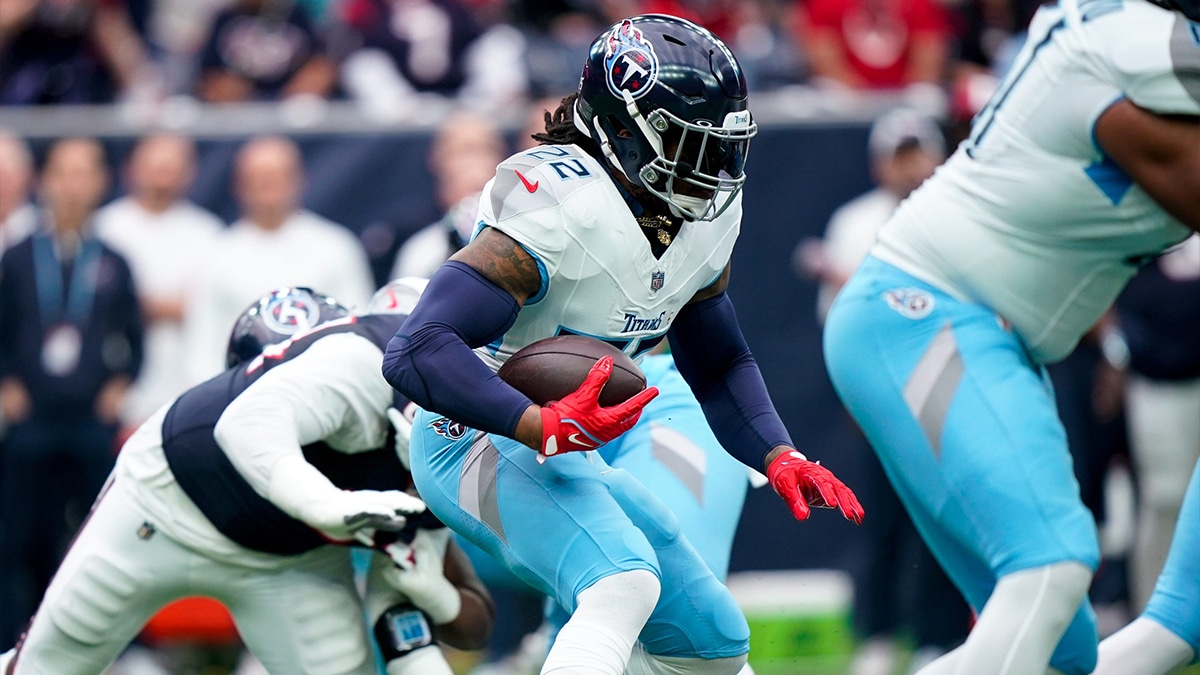
To think the Titans snagged Derrick Henry in the second round of the 2016 draft is incredible. Another interesting fact is he got picked as the second running back that year. Dallas took Ezekiel Elliott with the No. 4 overall selection and Henry slotted as the No. 45 pick.
Some of the other skill players who went between them were Corey Coleman (WR, Browns), Will Fuller (WR, Texans), Josh Doctson (WR, Commanders), Laquon Treadwell (WR, Vikings), Paxton Lynch (QB, Broncos). Oh, my.
No matter the position need of those teams in that year, Henry would have been a better pick. His blend of speed, size (6-3, 247 pounds), and agility have made him a generational talent at the position.
Once the Titans figured out what they had — it took until 2018 — they unleashed the beast. King Henry rushed for 9,502 yards and scored 90 touchdowns before leaving this season to play for the Baltimore Ravens. His best season came in 2020 when he racked up 2,027 yards rushing — the fifth-best total in NFL history. He earned AP offensive player of the year honors.
And in each of the last six seasons, he has racked up double-digit touchdown totals, including 17 in 2020 and 16 in 2019.
2. RB Earl Campbell
At 5-11 and 232 pounds, Earl Campbell was a bulldozer. And the Houston Oilers used him as such.
In his first four NFL seasons, he carried 302, 368, 373 and 361 times. Along the way, he totaled 6,457 yards and 55 touchdowns. In 1978, he earned AP Offensive Rookie of the Year AND Offensive Player of the Year. He finished second to Pittsburgh’s Terry Bradshaw in the MVP voting.
That was the first year of the NFL’s newly implemented rules that encouraged more passing. So while Bradshaw’s numbers (2,915 yards, 28 TDs and 20 interceptions) were tame by today’s standards, they stood out that season.
Campbell earned MVP and Offensive Player of the Year honors the next season. And in 1980, he won another Offensive Player of the Year award while finishing runner-up to Cleveland’s Brian Sipe in the MVP voting.
Those three seasons stood out so much that Campbell earned a spot in the Hall of Fame despite averaging only 865 yards and six touchdowns over his last five NFL seasons.
And he could never solve the Steelers’ vaunted Steel Curtain defense. In the 1978 AFC Championship , he carried 22 times for 62 yards in a 34-5 loss. And in the title-game rematch in 1979, it was even worse with 17 carries for 15 yards as Houston lost 27-13. He didn’t score in either game.
1. QB Warren Moon
Despite not stepping onto an NFL field until he was 28 years old, Moon hit the ground running — or better said, hit it flying.
In 10 seasons with Houston, Moon threw for more than 3,000 yards six times. Most of his time in Houston, the Oilers used the Run-and-Shoot offense, which was a highly technical offense with four-receiver sets that requires the quarterback to make a lot of quick and difficult reads.
Moon's biggest production came in 1990 with 4,689 yards and 33 passing scores. He earned AP Offensive Player of the Year and finished third in the MVP voting behind Joe Montana and Randall Cunningham.
He followed up with 4,690 yards and 23 touchdowns in 1991. In his final six years with the Oilers, Moon earned Pro Bowl honors each season.
Moon signed with the Edmonton Eskimos out of college and helped the team win five consecutive Grey Cups (the CFL's equivalent to the Super Bowl). Seeing that success, the Oilers gave him a free-agent contract that made him the NFL’s highest-paid player at the time (1984).
His career totals in 17 NFL seasons are impressive. He threw for 49,325 yards and 291 touchdowns. Throw in the CFL numbers and it rises to 70,553 yards passing and 435 touchdowns. Those totals would be top six all-time in NFL history.
Unlike his CFL days, Moon couldn’t get the Oilers over the top in the postseason. His record was 3-6, including a heartbreaking 26-24 loss to the Denver Broncos in the 1991 season — where Moon and his teammates were victims of The Drive II.

